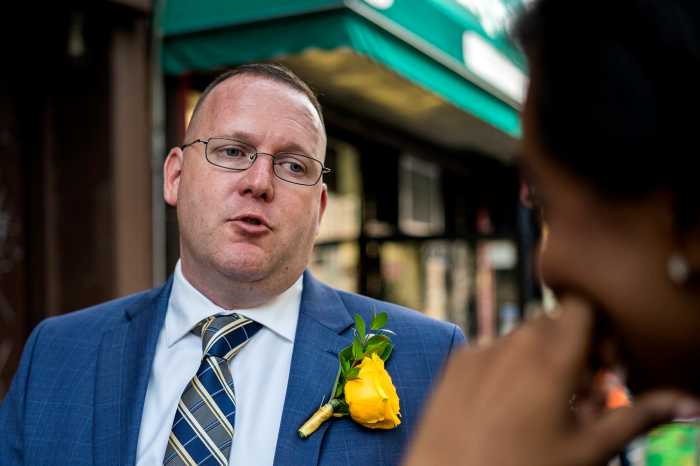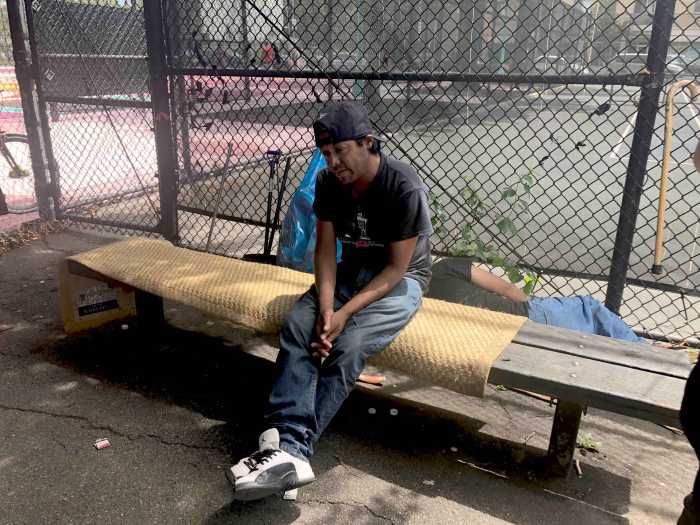Once a top contender to succeed Mayor Bill De Blasio (D), City Council Speaker Corey Johnson (D-Chelsea, Hell’s Kitchen, Greenwich Village, West SoHo, Hudson Square, Times Square, Garment District, Flatiron, Upper West Side) announced last Thursday that he would not seek to become Gracie Mansion’s next major resident. He cited his mental health stemming from the stresses of the COVID-19 pandemic, protests, and economic uncertainty.
In a Monday morning appearance on NY1, Johnson discussed his emotional struggles and hoped that he could offer support to other New Yorkers who have felt the challenges of the times.
“This has disrupted everyone’s lives, and I’m really fortunate that I didn’t get sick during COVID, I haven’t lost a family member, I still have a job, so I’m really grateful, but I have had a really hard time personally,” he said. “I hope that if you’re struggling, you get the help and support that you need. I see a therapist on a weekly basis now, I’m on medicine myself, and everyone deserves to get the help that they need like I have over the last few months.”
In response to the news, former Veterans’ Services Commissioner, brigadier general, psychiatrist, and announced 2021 mayoral candidate Loree Sutton (D) has offered several solutions to the mental health crisis, which she sees as predating the pandemic.
“We were already struggling with issues of social isolation, both within the city as well as more broadly around the country. Our body politic has become more polarized and our rhetoric has gone to extremes,” said Sutton. “We’ve certainly seen this in cases of bullying and mobbing whether it be on social media or even watching the news. It has become a real stressor for many of us, if not most of us.”
More specifically, she criticized city and state leadership for neglecting the mental health needs of many Rikers Island inmates as the city works to close the jail complex in the years leading up to the current crisis, particularly ThriveNYC.
“Upwards of 20 to 30, even 40 percent of those inmates have serious mental illness and substance misuse problems. No accommodation was made. The Thrive program was wholly incapable of addressing their needs,” Sutton recalled. “At the same time, the governor was cutting down on hospital beds, a long-term residential and treatment programs on addiction and recovery programs.”
If elected, she hopes that her psychiatric expertise will equip her to tackling the city’s mental health crisis.
“I’m standing up for putting together the system of care in place that addresses both mental health issues as well as mental illness issues. That’s what Thrive was never designed to do, and unfortunately, we know what’s become of that,” said Sutton. “New York no longer wants to even hear the word `thrive’, so I’ve started calling a strive program. It’s well-intended, but it’s a strive program. It needs to be brought up to the level of thriive, and that has to encompass both mental health and mental illness, particularly the needs of the seriously mentally ill.”









